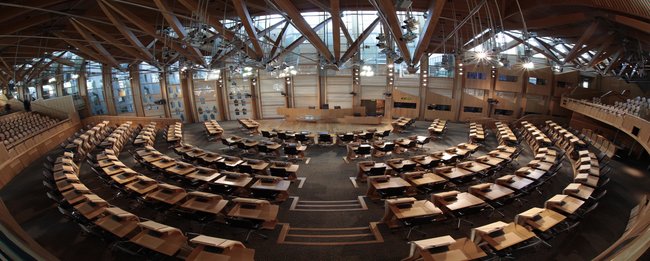By Rhiannon Sims, Policy and Research Adviser, Oxfam Scotland
Earlier this month, it was time for another “rich list” to be published. Who moved up and who slid down the rankings won’t mean much to most people across Scotland, with the levels of individual wealth so staggering they are almost impossible to even imagine.
Easier, but far more painful, to imagine are the consequences of last week’s news that in some parts of Scotland, almost half of kids are growing up trapped in poverty. A few folk having billions in the bank will mean little to those who can’t even afford to put food on the table.
This is the reality of modern Scotland. A fifth of people are in poverty while inequality grows.
A few weeks ago, I helped organise an event involving those who know what poverty feels like in Scotland, along with anti-poverty campaigners and people delivering services on the front line.
It was an honest discussion about how the Scottish Government should spend its £42 billion annual budget. Of course, the causes of deprivation, or all the solutions, don’t just lie in the hands of the Scottish Parliament, but the Scottish budget has the resource to start to make a difference.
The event wasn’t about coming up with complicated new policies. It was about opening the floor up to those who know what life is like on the poverty line. We were delighted that members of Scotland’s independent Poverty and Inequality Commission were there to listen.
They’ve now put what they heard at the heart of their report into the Scottish Government’s budget for this year.
Set up after the 2016 election, the Commission gives ministers independent advice on how they can tackle poverty and inequality – both of which are on the rise and predicted to keep growing. According to the Commissioners, the Scottish Government has to take “sustained action” and invest “considerably more” if it wants to make progress in reducing poverty and inequality.
They point to one policy lever they think ministers should pull now.
The income supplement, scheduled for delivery by 2022, is designed to get money into the pockets of those who need it the most. But today’s report couldn’t be clearer: 2022 is too far away for families who need cash today.
The Commission is also frank that the supplement “will only make a difference if the amount provided is meaningful”. A few extra quid here or there won’t lift people out of poverty.
The new income supplement has the potential to create substantial change, but it can’t just turn out to be warm words; it must be an urgently needed lifeline for families up and down the country.
The Scottish Government established an independent commission because of the scale of poverty and inequality. It must use the powers and the pounds it controls to act on their recommendations.
If it doesn’t, while the super-rich toast get richer, the poorest will be left further and further behind.
This opinion piece was first published in the Daily Record on 22 May 2019.
